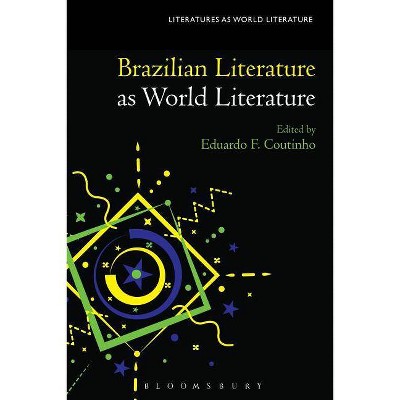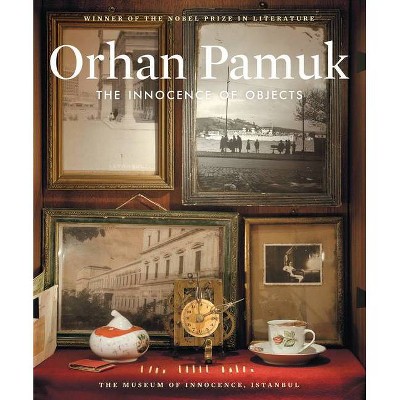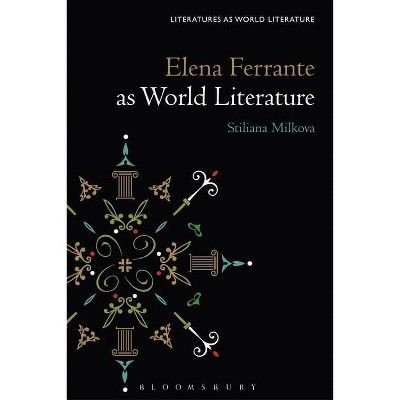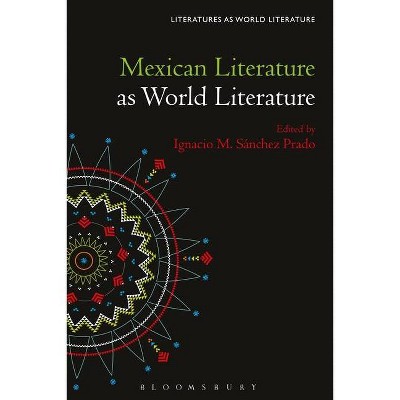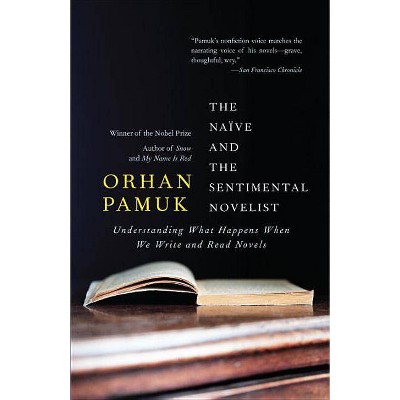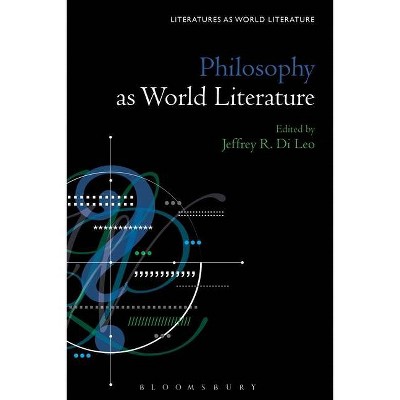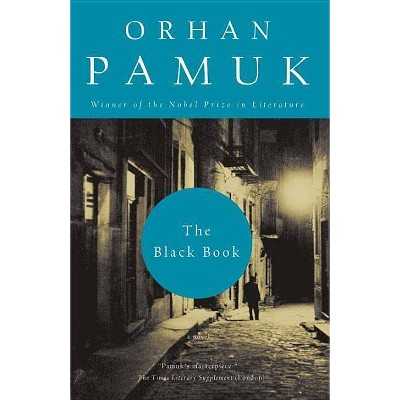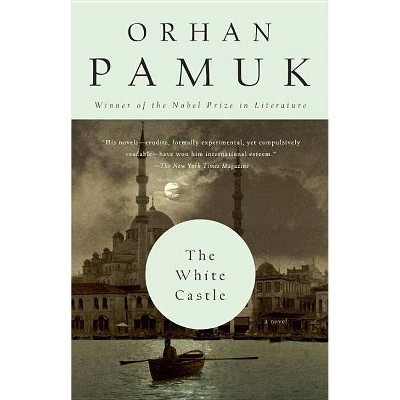Orhan Pamuk and the Good of World Literature - (Literature Now) by Gloria Fisk (Hardcover)
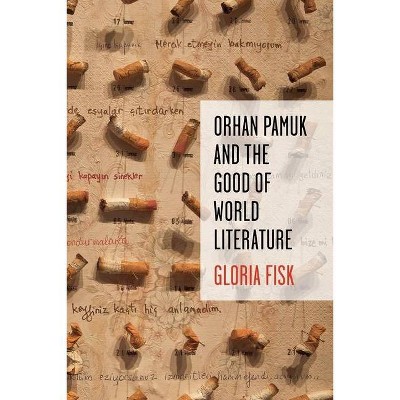
Similar Products
Products of same category from the store
AllProduct info
<p/><br></br><p><b> About the Book </b></p></br></br>Gloria Fisk traces the terms of Orhan Pamuk's engagement with a literary market dominated by the tastes of its Anglophone publics and the instrumental use of literature as a source of crosscultural understanding. She<i> </i>proposes a new way to think about the uneven processes of translation that carry contemporary literature to its readers.<p/><br></br><p><b> Book Synopsis </b></p></br></br>When Orhan Pamuk won the Nobel Prize for Literature in 2006, he was honored as a builder of bridges across a dangerous chasm. By rendering his Turkish characters and settings familiar where they would otherwise seem troublingly foreign, and by speaking freely against his authoritarian state, he demonstrated a variety of literary greatness that testified also to the good literature can do in the world. <p/>Gloria Fisk challenges this standard for canonization as "world literature" by showing how poorly it applies to Pamuk. Reading the Turkish novelist as a case study in the ways Western readers expand their reach, Fisk traces the terms of his engagement with a literary market dominated by the tastes of its Anglophone publics, who received him as a balm for their anxieties about Islamic terrorism and the stratifications of global capitalism. Fisk reads Pamuk's post-9/11 novels as they circulated through this audience, as rich in cultural capital as it is far-flung, in the American English that is global capital's <i>lingua franca</i>. She launches a polemic against Anglophone readers' instrumental use of literature as a source of crosscultural understanding, contending that this pervasive way of reading across all manner of borders limits the globality it announces, because it serves the interests of the Western cultural and educational institutions that produce it. <i>Orhan Pamuk and the Good of World Literature</i> proposes a new way to think about the uneven processes of translation, circulation, and judgment that carry contemporary literature to its readers, wherever they live.<p/><br></br><p><b> Review Quotes </b></p></br></br><br>Across this work Gloria Fisk examines the Orhan Pamuk case and delivers a compelling account of the state of non-Western authors and the good they are expected to do in the world with their literature.... Her stance provides her a sensitive lens through which to observe the abundant and complicated social and political aspects interwoven in Turkey's fabric.--Busra Copuroglu "C21 Literature: Journal of 21st-Century Writings "<br><br>Gloria Fisk's <i>Orhan Pamuk and the Good of World Literature</i> is a timely book, not only because it contributes to the continuing debate on world literature that has occupied literary academic circles since the 1990s but also because it sets out to uncover the immense impact of neoliberalism on academia in the United States.--Meltem Gürle "Twentieth-Century Literature "<br><br>Moving deftly from text to context, from the literary to the extra-literary, from the internal dynamics of the work of art to the institutions the work inhabits, Fisk displays a rare methodological versatility and performs these analyses with a sophistication that is rarer still. The strength of Fisk's argument rests on her reorientation of the debate over world literature, reading it as a product of its institutional location, rather than the terms it sets for itself.--Janice Ho "Novel: A Forum on Fiction "<br><br>One of Fisk's ancillary achievements lies in modeling a single-author monograph that is expansive rather than parochial, progressive and not fuddy-duddy ... If, by the end of <i>Orhan </i><i>Pamuk and the Good of World Literature</i>, literature's good has not been rebuilt exactly, Fisk does suggest the path towards a more modest literary criticism--a future that looks bright so long as we have scholars amongst us like Fisk who write with not only intellectual honesty but moral clarity.--Jesse Bordwin "Studies in the Novel "<br><br>A provocative and necessary contribution to the field of contemporary world literature.--Audrey J. Golden "College Literature "<br><br><i>Orhan Pamuk and the Good of World Literature</i> unrelentingly probes what it means to think of the literary as a vehicle of political good, to assume that reading a novel about far-off places promotes empathy, and to valorize select writers as translators of alien worlds, even as their works circulate only in English in the West. Showing what it means to read a writer like Orhan Pamuk as a bridge between East and West, Fisk highlights the risks of transporting a U.S. multicultural logic to the globe, insisting that the Anglo-American academy is complicit in the very hegemony it seeks to critique.--Yogita Goyal, University of California, Los Angeles<br><br>Gloria Fisk has written an important and challenging book. Using the work and career of Orhan Pamuk, she has set out to understand the complex and not always benign forces that go into the making of a worldwide literary superstar. Not for or against Pamuk, this book is with him in his attempt to enter the gates of the Western canon without at the same time losing his soul.--Keith Gessen, cofounding editor of <i>n + 1</i><br><br>In this forcefully argued book, Gloria Fisk defends Orhan Pamuk--and other writers of world literature--from nationalists who brand them as traitors and academics who cling to reading in the original. It is a book that tackles the question of literature in our time. --Martin Puchner, Harvard University<br><br>Taking Orhan Pamuk as her central case study, Gloria Fisk probes the uses and abuses of world authors in American literary studies, as foreign writers become enlisted for domestic agendas. Her nuanced account will provoke self-reflection and debate among postcolonialists, comparatists, and world literary scholars alike.--David Damrosch, Harvard University<br><p/><br></br><p><b> About the Author </b></p></br></br>Gloria Fisk<b> </b>is an associate professor at Queens College, CUNY. Her work has been published in <i>New Literary History</i>, <i>n+1</i>, and <i>The American Reader, </i>among other places.
Price History
Cheapest price in the interval: 65 on November 8, 2021
Most expensive price in the interval: 65 on December 20, 2021
Price Archive shows prices from various stores, lets you see history and find the cheapest. There is no actual sale on the website. For all support, inquiry and suggestion messagescommunication@pricearchive.us

